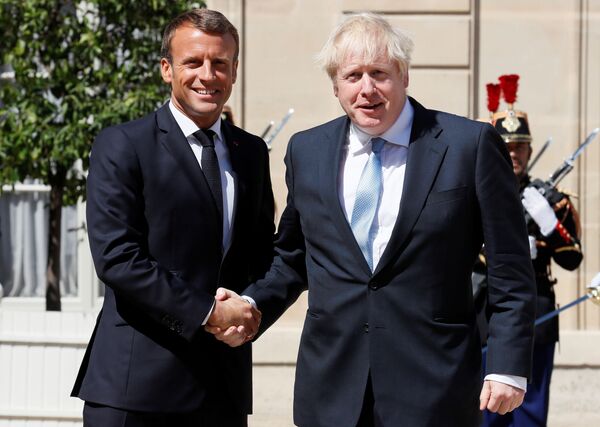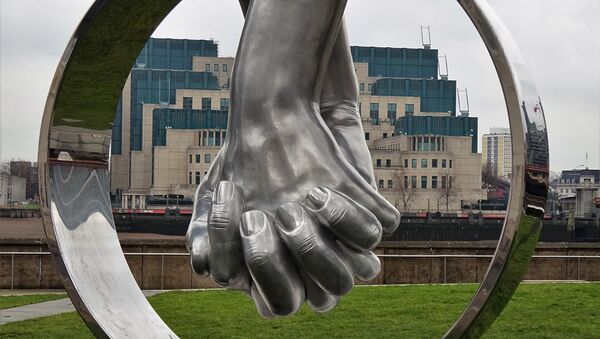Britain’s MI6 is sending more of its agents to the EU as the Brexit deadline draws nearer, according to information obtained by The Mail on Sunday.
The Secret Intelligence Service (SIS) is reportedly ramping up its activity in Brussels, Berlin and Paris, as the government is said to be seeking an edge in last minute talks to remove the Irish backstop and facilitate trade deals post-Brexit.
The latest developments come as the intelligence services were allegedly infuriated by UK Prime Minister Boris Johnson's intention to shortly pull British diplomats from Brussels to underpin the message that London will exit the EU by 31 October “do or die”.
It is understood that senior MI6 figures complained the decision has seriously impacted the agency's activities because many of those due to attend are on their payroll, with an intelligence source saying:
“It has not been helpful. Many of my colleagues have now been told that their leave is being cancelled from the start of September to help to close the information gap".
Some critics of the move insist a symbolic walkout from the European Union’s decision-making bodies would leave London blindsided on decisions and be detrimental to national interests.
Tory MP Tom Tugendhat, chairman of the Commons Foreign Affairs Committee, released a letter he had written to Foreign Secretary Dominic Raab objecting to the pullout.
“These meetings allow us to be as plugged in as possible to the EU's thinking and to influence decisions… These groupings can be a valuable source of support for the UK… and can provide information the UK can use to shape outcomes", writes Tugendhat.
UK Diplomats Reportedly Set to Quit EU Institutions
Earlier, information surfaced that Downing Street was reportedly planning to pull British diplomats from Brussels in a bid to reinforce the message that the UK is leaving the EU by the 31 October deadline, in a move said by London officials to be in line with Boris Johnson’s first statement in the House of Commons.
At the time, Johnson pledged to “unshackle” British diplomacy from Brussels, claiming both sides needed to recognise the “reality” that the UK’s “national participation in the European union” was coming to an end.
EU diplomats said they would regret any decision by the British government to prematurely leave the Brussels institutions.
Boris Johnson’s European Tour
The UK PM has just wrapped up a tour of Europe, where he tried to persuade key EU leaders to accept a renegotiation of the deal they offered his predecessor Theresa May last year, which included the infamous “backstop”.
German Chancellor Angela Merkel and French President Emmanuel Macron made clear they will only renegotiate if the UK government can come up with new proposals that protect the single market and prevent the return of a hard border in Ireland.

The Irish backstop is an EU "insurance" policy, aimed at preventing a "hard" border between the UK's Northern Ireland and the Republic of Ireland, a EU member state, after Britain leaves the bloc.
Currently, there are no checks on goods or people at the border.
Boris Johnson became the British Prime Minister on 24 July, replacing Theresa May, vowing to implement Brexit by 31 October. Although he repeatedly underscored he wanted to renegotiate the deal, he was emphatic that if necessary he would leave without a deal.
The United Kingdom voted to leave the European Union in 2016. Since then, the withdrawal has been delayed several times due to the UK Parliament repeatedly rejecting the deal proposed by former Prime Minister Theresa May.
Brussels has given London several deadline extensions, with the latest one set for 31 October.


